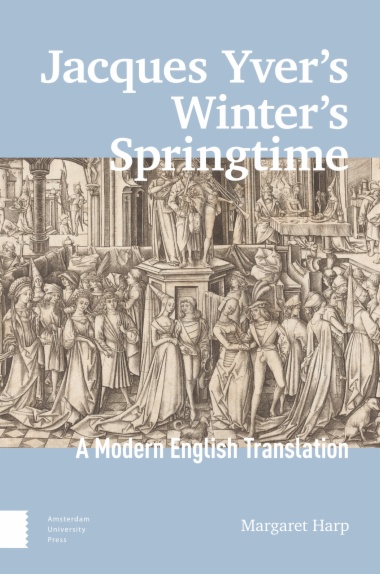A prose work interspersed with poetry, Le Printemps d'Yver was highly popular in its day, seeing thirty editions between 1572 and 1635. Jacques Yver’s stories and their premise – three gentlemen and two noble women who spin five tales in order to distract each other from the horrors of the recent third religious war and to rejoice in the brief 1570 truce of Saint-Germain - provide an intriguing and distinctive continuation of this genre evocative of Boccaccio and Marguerite de Navarre. It reveals an author with a profound humanist education whose text, inspired by Bandello, engages the social and political controversies of late sixteenth-century France. Henry Wotton translated Le Printemps into early modern English in 1578, removing all references to the original author and title while also mistranslating, deleting, and substituting passages. This modern English translation constitutes the first complete translation of the original French text.
- Cover
- Table of Contents
- Acknowledgements
- Introduction
- nagram of Jacques Yver
- To the Beautiful and Virtuous Young Ladies of France, Greetings
- Sonnet by Joseph Yver on the Springtime by Jacques Yver, His Brother
- Response in Similar Rhyme by Marie Yver, Their Only Sister
- To the Favorable and Good-Willed Reader, Greetings
- First Day
- Second Day
- Third Day
- Fourth Day
- Fifth Day
- Farewell to His Book
- Death of the Author
- On the Same Subject. Sonnet
- Bibliography
- Index

